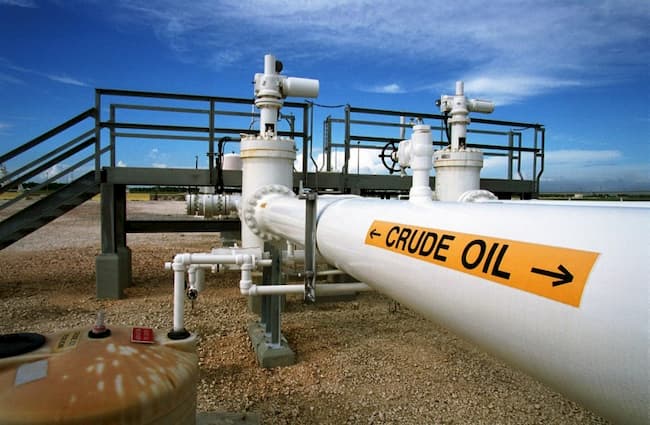The Federal Government has called on the United Arab Emirates to invest in the renewal and reconstruction of Nigeria’s aging oil pipelines, which are over 50 years old and have exceeded their operational lifespans. This appeal was made during a meeting on Monday, where the government emphasized the urgent need for updated infrastructure to support the country’s oil industry.
Minister of State for Petroleum (Oil), Heineken Lokpobiri, hosted a delegation from the UAE led by Ambassador Salem Al Shamsi in Abuja. Lokpobiri highlighted the vast investment opportunities in Nigeria’s oil sector, particularly the critical need to replace outdated pipelines dating back to the 1950s.
“These pipelines have been in use since Nigeria discovered oil in commercial quantities in 1956/1958. Nearly 70 years later, they have outlived their lifespans. We need to transport crude oil efficiently to export terminals, and this is where investment opportunities for the UAE lie,” Lokpobiri said.
He proposed attractive investment models to the UAE delegation, suggesting that investors could recover their investments through charges on the crude transported via the new pipelines.
Lokpobiri also underscored Nigeria’s substantial gas reserves, stating, “Nigeria holds over 208 trillion cubic feet of gas, a figure that could potentially double or triple with more exploration. Our crude oil reserves, currently at 37 billion barrels, are based on decades-old records and likely much higher.”
He reaffirmed the government’s commitment to revamping the oil sector by reducing bureaucratic delays and liberalizing processes, aligned with the Petroleum Industry Act which aims to make the NNPC operate profitably for the benefit of Nigerians.
Lokpobiri assured the UAE that Nigeria is eager to deepen strategic relations and attract investments, especially in light of recent improvements in the business climate and visa policies. He also noted the mutual benefits of Nigeria and the UAE’s partnership within OPEC.
The UAE delegation, led by Ambassador Al Shamsi, expressed commitment to addressing Nigeria’s concerns and enhancing bilateral relations. “We value our long-standing relationship with Nigeria and are serious about improving the situation,” Al Shamsi stated.
Lokpobiri emphasized that Nigeria and the UAE are aligned on continuing oil exploration, advocating for greener and more sustainable methods rather than abandoning fossil fuels altogether. He highlighted Nigeria’s commitment to the Paris Agreement and the necessity of securing investments to fund the energy transition.
He stressed the importance of strategic partnerships to raise the necessary funds for this transition, particularly for African nations.
Ambassador Al Shamsi reiterated the UAE’s willingness to collaborate with Nigeria to address the challenges and capitalize on the opportunities in the oil and gas sector. The meeting concluded with a mutual commitment to strengthen ties and work towards sustainable energy solutions.
This discussion follows an announcement by the Group Chief Executive Officer of the Nigerian National Petroleum Company, Mele Kyari, in March 2024, regarding the replacement of the firm’s over 5,000km petroleum products pipeline network within three years. Kyari noted the essential role of pipelines in transporting petroleum products efficiently and the ongoing efforts to reinforce and replace the aging network.
The collaboration between Nigeria and the UAE represents a significant step towards addressing Nigeria’s energy infrastructure challenges and fostering economic growth through strategic investments in the oil and gas sector.












